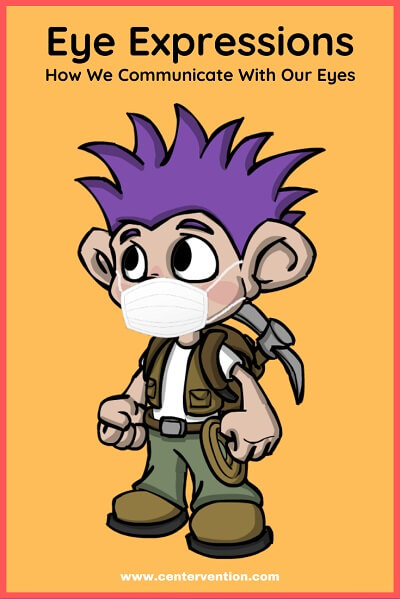Our eye expressions can convey a significant amount of information about how we are feeling even if we are not speaking.
In the lesson below, you will work with your students, in person or via virtual learning, to help them learn how to use their eyes to show others how they are feeling and pick up on body language clues from their classmates as well.
After completing the lesson, your students will have a better understanding of how they can use eye expressions to tell other how they feel.

Recommended Grade Level: All
SEL Skill(s): Communication, Empathy
Duration: 30 minutes
Materials: None
Eye Expressions Activity Instructions
Ask your students how they can communicate without speaking. They might say things like: smiling, frowning, crying, using eye expressions, hand gestures, etc. And then ask them, how can they communicate if they are wearing a mask?
Explain that today, they will learn how to communicate with each other only using their eyes. To help them think about how they might do this, ask them the following questions:
- What does it mean when someone winks?
- What if someone closes both eyes for a few seconds and slowly opens them?
- What if someone raises one or both eyebrows?
- What if someone doesn’t look you in the eye or stares at their feet?
- What does it mean (and look like) when someone “rolls” their eyes?
Optional: The four images below are Communication Kid (CK) form our online SEL game, Adventures Aboard the SS GRIN. Show these images of CK and ask your students what CK is feeling based on what his eyes look like. Ask them to explain why they think that.




Eye Expressions Lesson
With a partner or a group, have one person pick a feeling from the list below:
- Bored
- Excited
- Focused
- Frustrated
- Happy
- Mad
- Scared
- Sad
- Surprised
Next, and wearing a mask to cover their mouth, have them use their eyes to express that feeling to a partner or the group. They should keep guessing until they get the correct emotion and then switch to another person and another feeling.
Note: We have a longer, more nuanced list of emotions and a feelings wheel that you may want to use to generate ideas for additional practice.
Additional Resources
Books
- What Am I Feeling? By Josh Straub and Christi Straub
- Donnie Makes New Friends: A Lesson In Eye-To-Eye Contact by Mr. Terrence N. Tullgren
- Look At Me Look At Me: An Eye Contact Game
Related Lessons